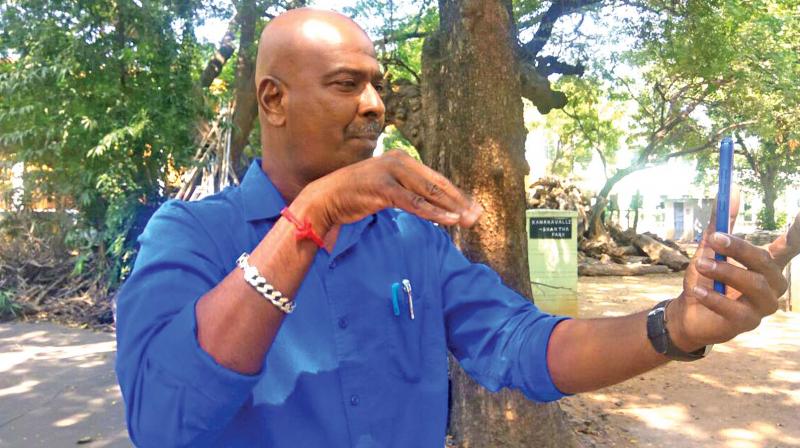Chennai: Mobile video calls great boon for hearing impaired to communicate
This is possible with the advancement in mobile technology and penetration of 4-G network in the country.

Chennai: Kousalya, 23, hearing impaired, was indisposed recently. She was very happy when she saw Vinnarasi, a teacher in Little Flower Convent Higher Secondary School for Deaf, Nungambakkam, on a smartphone last week.
Seeing the teacher, tears rolled down her eyes and she shared her woes with her teacher. V. Vijaykumar, an accountant in a state government office, also hearing impaired, communicates easily with his wife and children.
Both Kousalya and Vijayakumar communicate with others in sign language with the help of video calls on social media apps including Skype, Facebook, IMO and Google Duo. This is possible with the advancement in mobile technology and penetration of 4-G network in the country.
Speaking to Deccan Chronicle, Vijaykumar said “Video calling on WhatsApp and other social media network is a boon to us. We are able to communicate with our loved ones at ease and know developments from the other side. “
Sister Amala Rafel, correspondent, Little Flower Convent Higher Secondary School for Deaf, said that rapid strides in science and technology have brought the world closer to them. “Our alumni are working in several countries including the USA and UK, and most remain in touch with the help of social networks.”
Sister M Jesintha Rosalind, headmistress, Little Flower Convent Higher Secondary School for Deaf, said so far they had communicated with others with the help of SMSes on cellphones. For the first time they were able to express their feelings by video calling others.
As per the 2011 census, Tamil Nadu has a population of 11,79,963 differently abled persons including 1,27,405 visually impaired, 3,00,318 hearing impaired, 2,87,241 with locomotor disability, 100,847 mentally retarded, 32,964 mentally ill, 92,796 multiple disabilities. Cellphone companies and the internet should provide services free of cost to people with special needs, especially to the speech and aurally impaired, said P. Prakash, a social worker.

